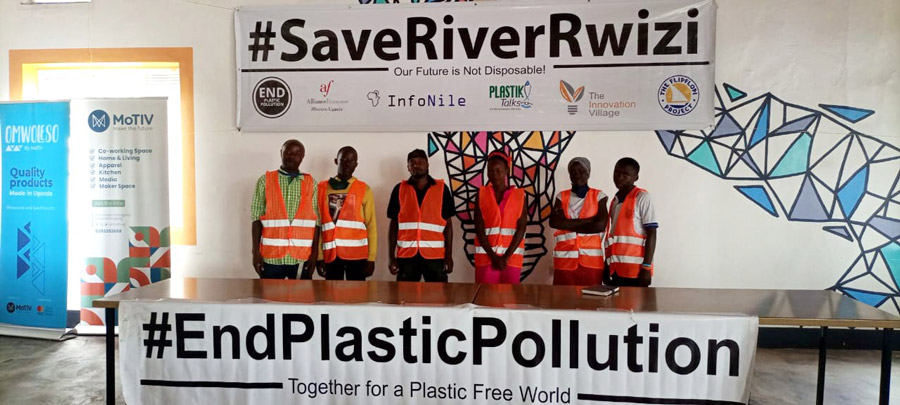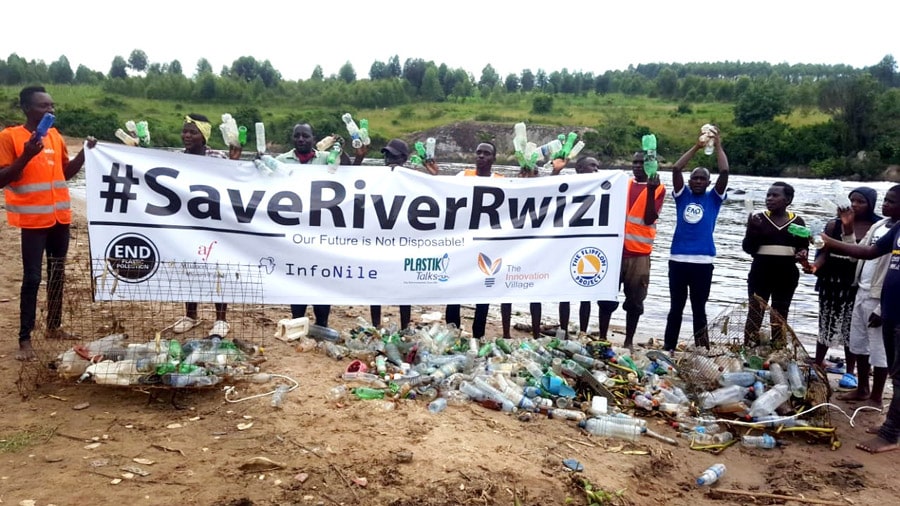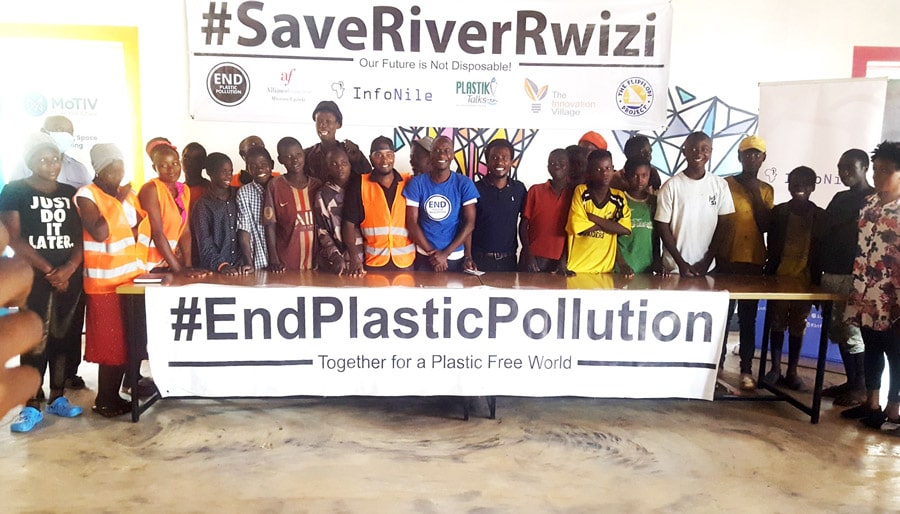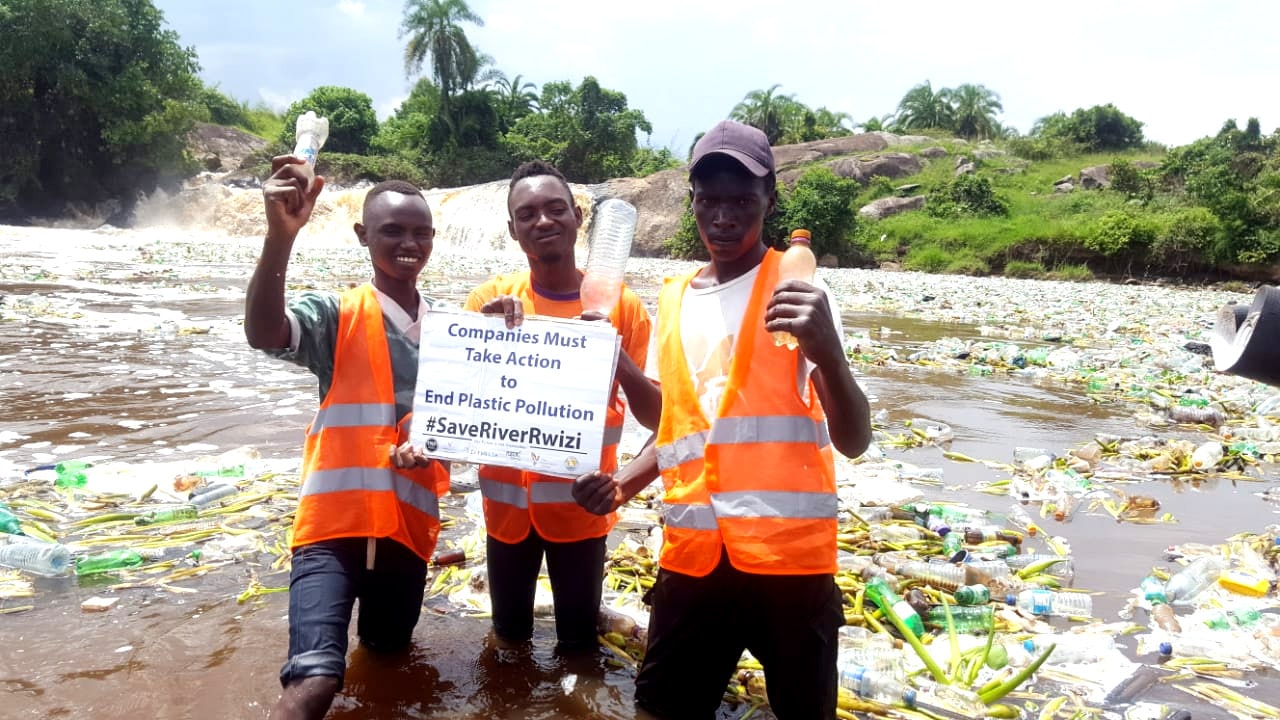Click here to read and download the Flowing With Plastics report
End Plastic Pollution is calling upon corporations to commit to phase-out single-use plastics. Flowing with Plastics is a new report series that is focused on exposing false solutions proposed by the companies responsible for plastics waste found in our rivers. This first series focuses on River Rwizi in Western Uganda and The Coca-Cola Company, Uganda’s top plastic polluter in 2021.
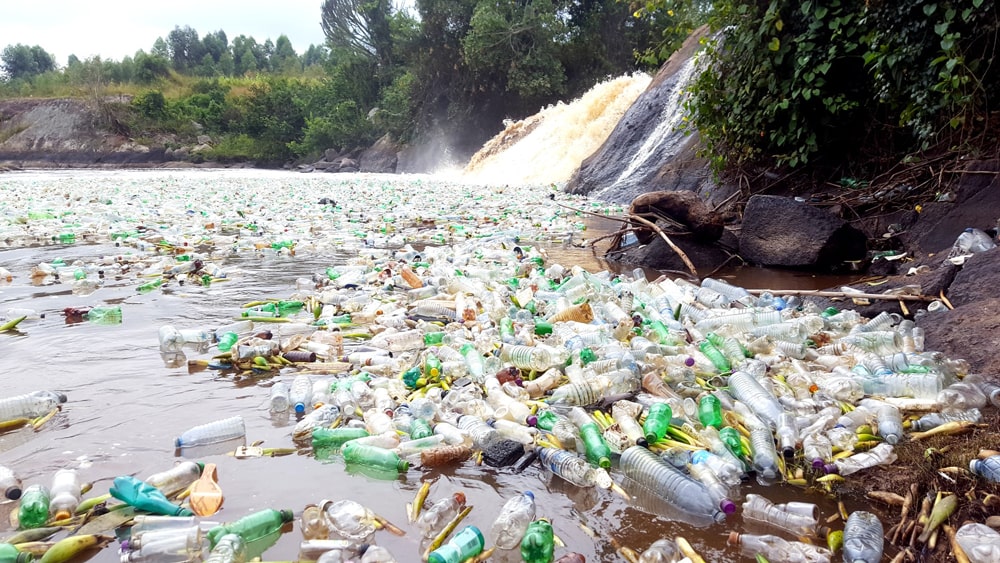
Beginning 2021, our team of youth leaders and volunteers followed River Rwizi for 3 months documenting the extent of plastic waste and which brands contributed to it. Our team analyzed situations at three major areas on River Rwizi namely Lugazi, Kateete falls, Nyamitonga bridge Area and Buremba village. Findings from this research concluded that River Rwizi is the most visibly damaged river by plastic pollution in Uganda and we decided that the world should know about this.
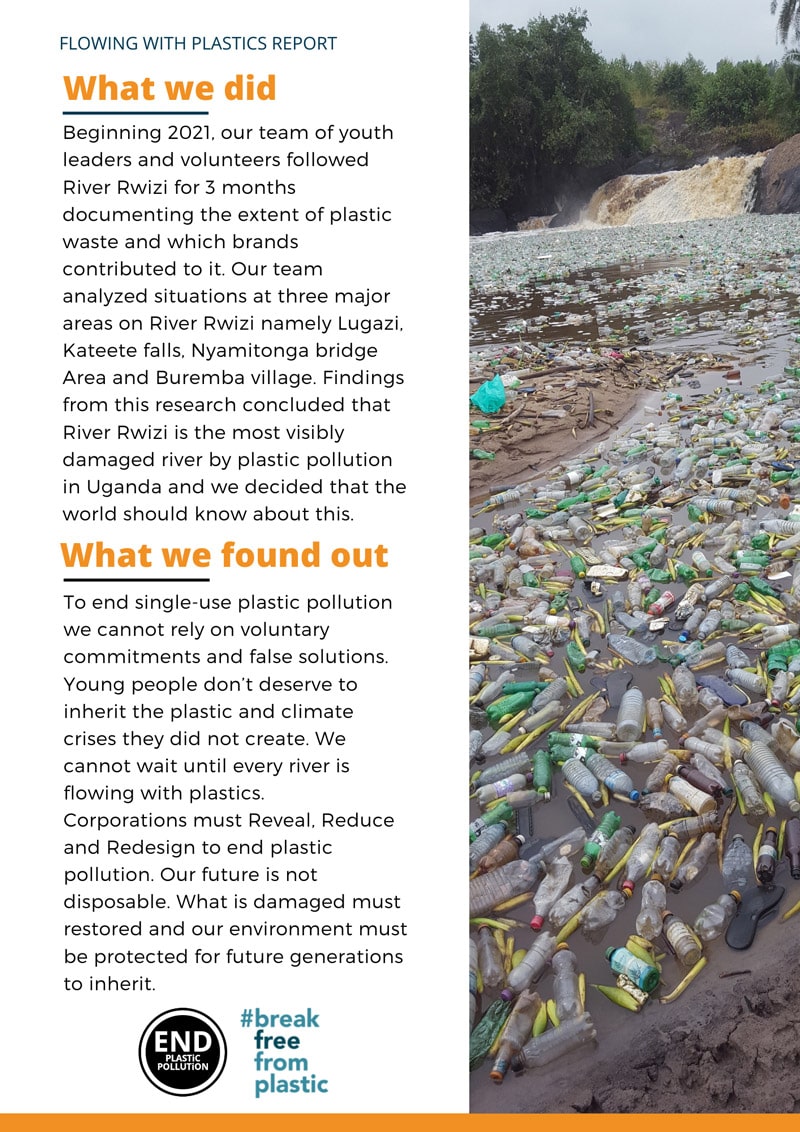
On December 2, 2021 we launched a campaign to save River Rwizi with the major aim to;
• To help people understand plastics, its impacts to people, planet and how to avoid single-use plastics.
• To call for community level, national and regional reforms around plastic use and manufacturing. Hold plastic polluters accountable and promote zero-waste circular economy systems.
• To promote learning, art and skills sharing among the youth.
• To promote awareness through local media for communities along River Rwizi.
These activities were conducted involving youth in community based activities including collective cleanups on River Rwizi and protests in Mbarara City. The cleanup on River Rwizi is the most risky cleanup we have ever conducted because of the heavy running water. Also, rising water levels the day before the cleanups posed a serious threat for many to drown. Nevertheless, we braved up and did a massive cleanup that was seen by over 56,100 people on Twitter, gaining over 188,162 impressions. We conducted a brand audit on all the waste collected from River Rwizi, 537 items were audited exposing 56 brands belonging to 36 companies.
Click here to read and download the Flowing With Plastics report
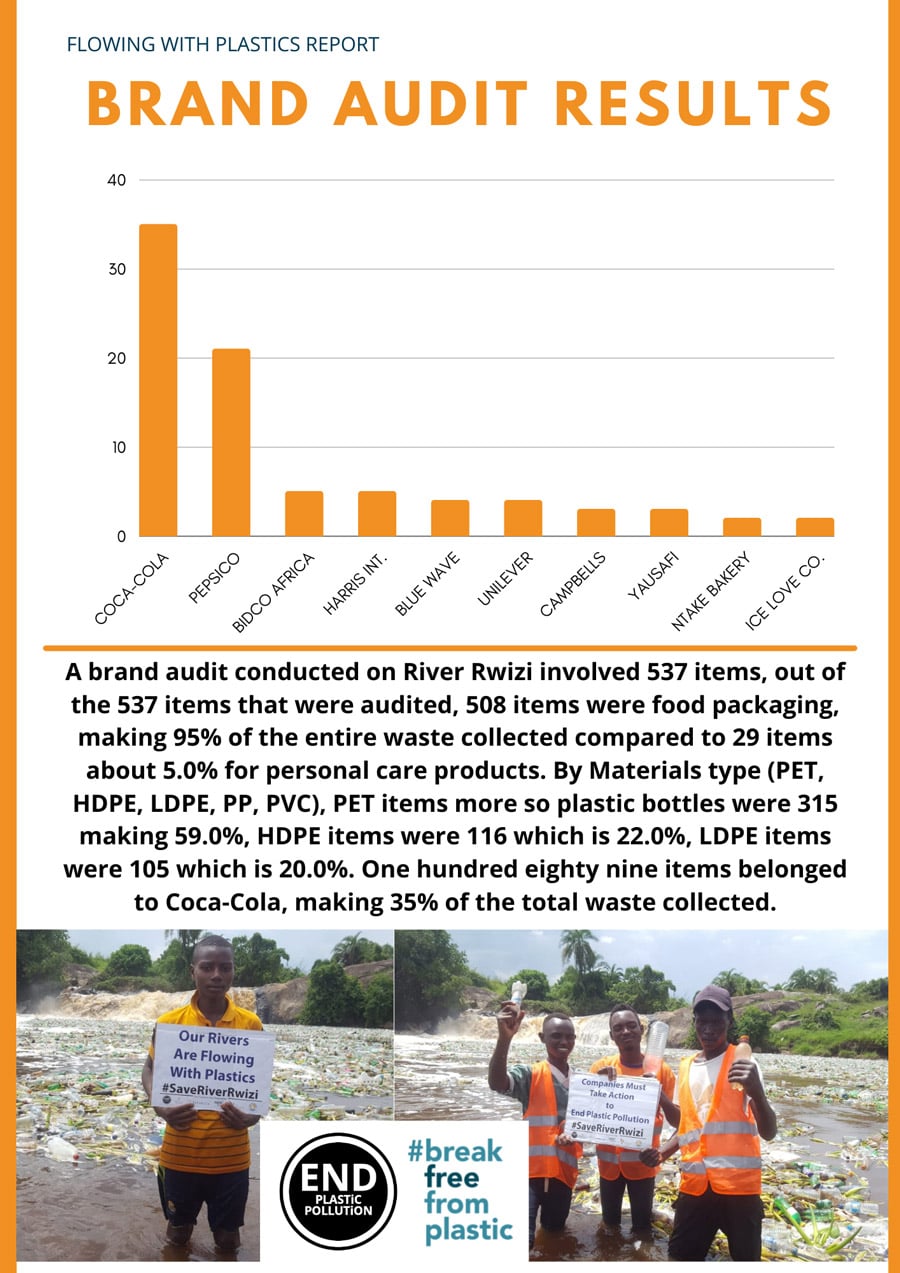
Our #SaveRiverRwizi, protest helped spread the message to the streets of Mbarara, where even youth skaters participated in several rounds around Mbarara City and joined a group of environmental activists, local waste pickers and students. We also launched a special program for youth waste pickers within Mbarara City and hosted trainings for youth about Circular Economy practices and collective efforts to manage plastic so that it does not end up in the river.
Through the #SaveRiverRwizi we engaged with 500 youths including 60 youth waste pickers, students from schools, universities, local leaders from Mbarara City’s Kateete Division, Buremba Village, and Mbarara City Corporate Business community.
At this point of reach by plastic waste, greater action and accountability by polluting companies is needed. Initiatives like Brand Audits are helping to expose these plastic polluting companies and hold them accountable.
Brand Audits are an action to document the names of companies that produced the plastic waste polluting our communities. This generates undeniable data that clearly informs the process of holding polluters accountable for the plastic and climate crises.
The Brand Audit on River Rwizi, 537 items were audited, involving 56 brands from 36 companies. One hundred eighty nine items belong to brands part of The Coca-Cola product family making 35.0% of the total collection.
The Uganda Brand Audit was conducted in Jinja Eastern Uganda at Masese Landing Site in partnership with Break Free From Plastic. 469 items were audited, belonging to 47 brands from 32 parent companies. The Coca-Cola Company is leading a pack of other top polluting multinationals including Unilever, The Campbell’s Soup Company and Upfield. To make matters worse, local / regional manufacturers are also making huge amounts of single-use plastics with the excuse that they are making consumer goods affordable and accessible for the poor. These include Yaket and Hema Beverages who are making cheap bottled water for as low as UGX 500. Also among the top ten plastic polluters are companies Mukwano Industries and BIDCO Africa, which produce products almost found in every home in Uganda.
The global Break Free From Plastic brand audit report also revealed that The Coca-Cola Company continues to be the world’s largest plastic polluter for the 4th year in a row. In 2021, The Coca-Cola Company was recorded to have produced more plastic products than the next top two polluters, PepsiCo and Nestle, combined.
It is no surprise that the company holds this position, The Coca-Cola Company is hugely investing in its expansion to make more single-use plastics to package its ever growing family of soft drinks brands. The Coca-Cola Company now makes over 4,000,000 plastic bottles per week - that is 200,000,000 plastic bottles per year in Uganda - but continues to promote false solutions under its “World Without Waste” initiative.
To end single-use plastic pollution we cannot rely on voluntary commitments and false solutions like The Coca-Cola Company’s “World without Waste” initiative. Among the commitments made by The Coca-Cola Company is to collect every bottle for every one sold, however this has failed. Young people don’t deserve to inherit the plastic and climate crises they did not create. We cannot wait until every river is flowing with plastics.
This is why this part one of Flowing with Plastics highlights the urgent need for eliminating single-use plastics by corporations like The Coca-Cola Company. In order to end plastic pollution, The Coca-Cola Company and other top polluters need to REVEAL their total plastic footprint, REDUCE the amount of plastic they produce, and REDESIGN their packaging for refill and reuse. Our future is not disposable. What is damaged must be restored and our environment must be protected for future generations to inherit.
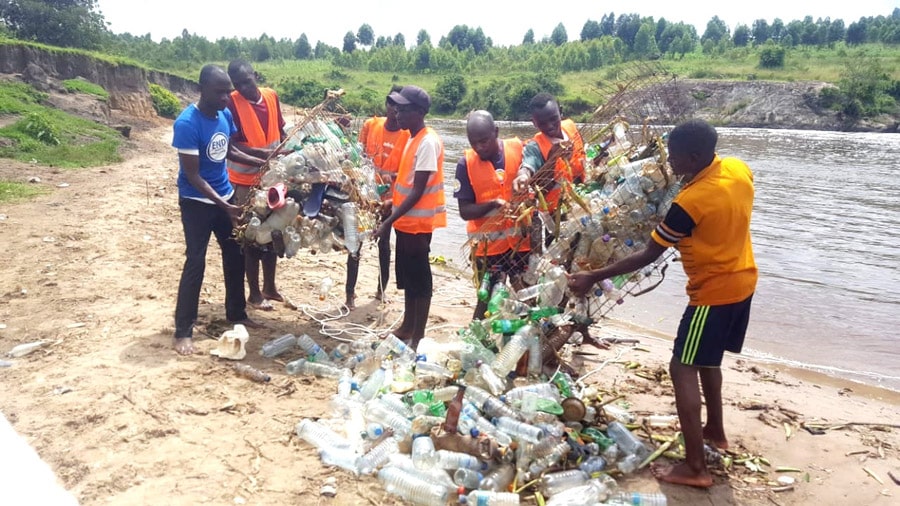
A cleanup on River Rwizi, 537 items were collected.
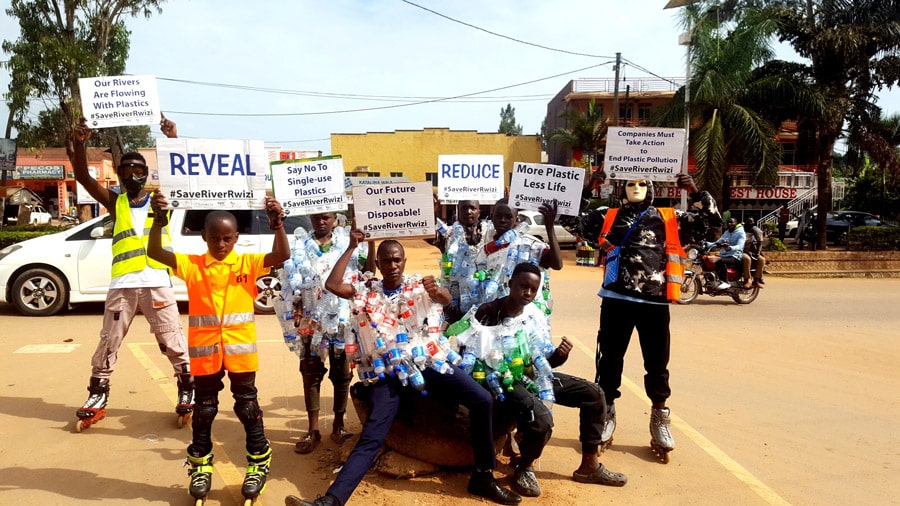
A protest in Mbarara Town to raise awareness about plastics polluting River Rwizi.
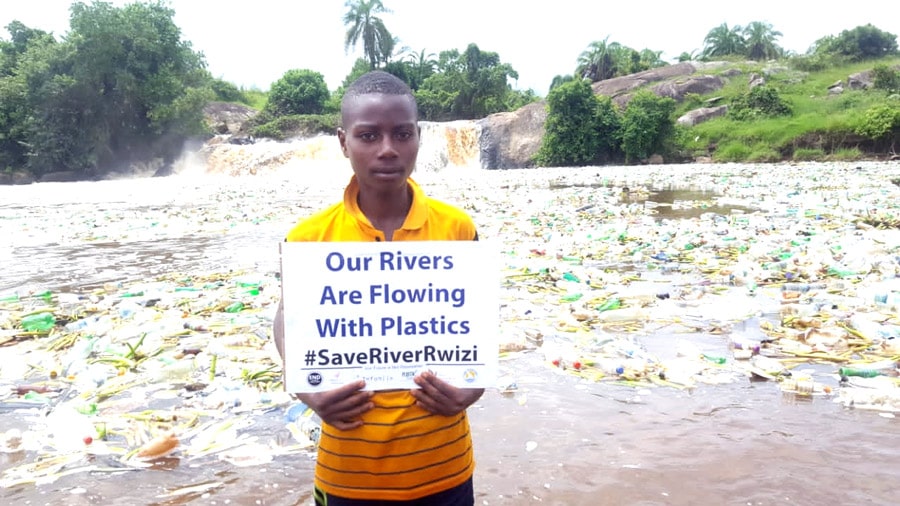
Ainebyona Martin, a youth from Mbarara was born in Buremba Village. His entire village survives on the water from the river for domestic purposes and for their cattle to drink. "The river was not like this while I sometime back, we used to come here with my friends to swim and fetch water for cooking food at home. My grandfather's cows and goats would come here to drink water but now it dangerous for them to drink this water". Says Ainebyoba while participating in the cleanup.
